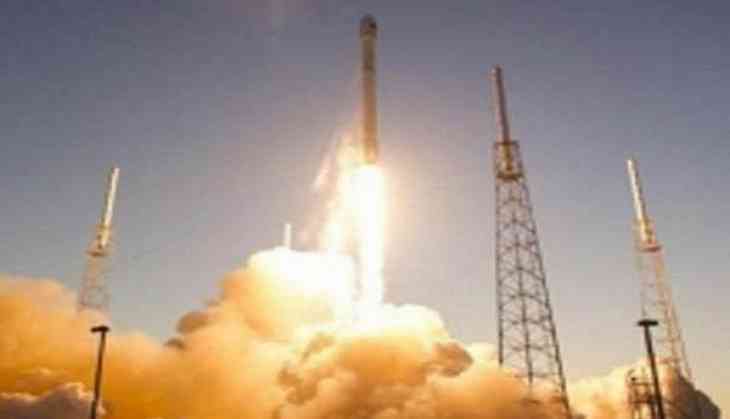
Pakistan has said that India's unwillingness to allow other South Asian Association for Regional Cooperation (SAARC) countries to participate in the development of a SAARC satellite made Islamabad stay out of the project.
"During the 18th SAARC Summit, India offered to 'gift' a Satellite to SAARC member states, to be named as the so-called "SAARC Satellite. Subsequently, however, India made it clear that it would build, launch and operate the satellite solely. However, its registration with the International Telecommunication Union (ITU) will be done as a SAARC Satellite," Pakistan Foreign Office Spokesperson Nafees Zakaria said.
Asserting that Pakistan was keen to participate in the project and also ready to share its expertise and technological know-how as Islamabad has its own space programme at an advanced level, Zakaria said, "However, as India was not willing to develop the project on a collaborative basis, it was not possible for Pakistan to support it as a regional project under the umbrella of SAARC,"
He added that the satellite was then renamed as "South Asian Satellite" as the project was taken out of the SAARC ambit.
Leaders of various South Asian countries with the exception of Pakistan welcomed the successful launch of Geosynchronous Satellite Launch Vehicle (GSLV-F09) on Friday, and, agreed with Prime Minister Narendra Modi that regional cooperation stood to be enhanced through such endeavours.
Seven SAARC leaders from Afghanistan, Bangladesh, Bhutan, Nepal, Maldives and Sri Lanka participated in the event via video conferencing and congratulated Modi for the successful launch of GSLV-F09.
The South Asian satellite (GSLV-F09) will connect the seven countries. Each of the participating SAARC leaders issued messages on the occasion.
Bangladesh Prime Minister Sheikh Hasina said, "On today's auspicious occasion, I congratulate the Government of India for the successful launch and happy to be able to talk to PM Modi and other esteemed leaders."
Congratulating Modi, Afghanistan President Ashraf Ghani termed the launch as an extremely important step to know nature and nature's patterns.
He further stated that "Development must be citizen-centric. Today's development is child-centered and women-centered, it makes governance accessible."
Ghani said, "Through this cooperation, we have to work for the poor and the deprived."
Bhutan Prime Minister Tshering Tobgay said, "The launch of this satellite will boost regional cooperation and bring about common progress of our region."
Calling it as an honour to be a part of the historic occasion, Sri Lankan President Maithripala Sirisena said, "May this initiative support people in all regions, enhance economic conditions & help eliminating poverty."
Maldives President Abdullah Yameen said, "It gives me immense pleasure to be a part of this occasion. On behalf of the people of Maldives my gratitude to PM Modi & India."
He even made a mention of Prime Minister Modi's visionary slogan "Sabka Saath Sabka Vikas".
Nepal Prime Minister Pushpa Kamal Dahal said, "This will be helpful to provide communication services in the mountain and hilly regions of Nepal."
Modi said "Two years ago India made a promise to extend the advanced space technology for the cause of growth and prosperity for our brothers and sisters in South Asia."
Hailing the pace with which the technology is touching the lives of the people of this region, he said, "With this launch, we have started a journey to build the most advanced frontier of our partnership. When we join hands & mutually share fruits of knowledge, technology & growth, we can speed up development and prosperity."
An Indian rocket with a satellite weighing over two tons blasted off from the Sriharikota spaceport on Friday evening.
Precisely at 4.57 p.m., the Geosynchronous Satellite Launch Vehicle ( GSLV-F09) rose into sky from the second launch pad at Satish Dhawan Space Centre in Andhra Pradesh.
All participating nations will have access to at least one transponder through which they can telecast their own programming.
The satellite is expected to provide communication channels between countries for better disaster management as the region is prone to natural disasters.
The national space agency ISRO used the indigenous cryogenic upper stage in this flight of the GSLV for the fourth time. In total, it would be the 11th flight of the GSLV.
-ANI


